Brexit: Jeremy Hunt 'could withhold part of £39bn divorce bill'
- Published
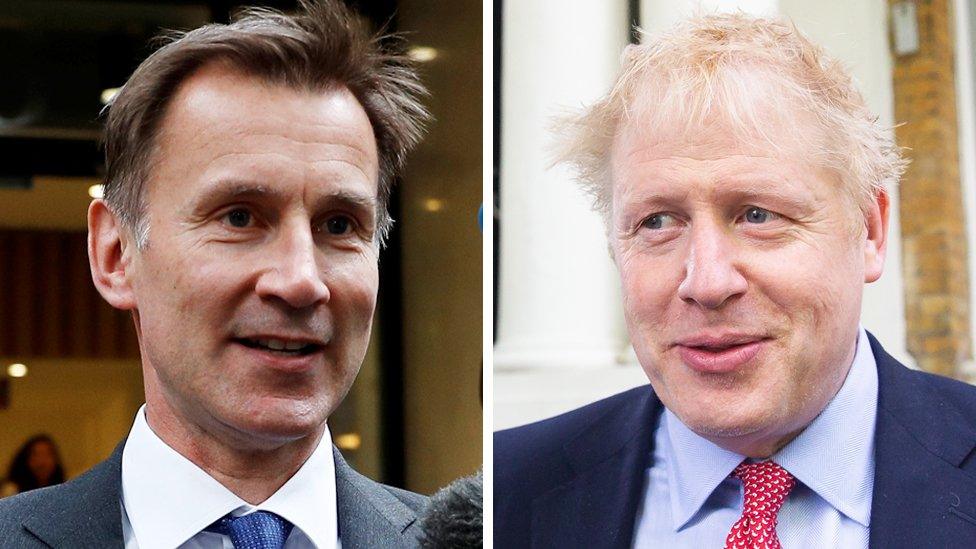
Prime ministerial hopeful Jeremy Hunt has said he would consider withholding some of the UK's £39bn EU "divorce bill" in the event of a no-deal Brexit.
The foreign secretary told the Sunday Times he would not hand over "a penny more than is legally required of us".
His leadership rival Boris Johnson told Sky's Sophy Ridge he would "suspend" the money until the UK got a new deal.
He said he believed the EU would give ground to the UK as it had a "powerful incentive" to avoid a no-deal exit.
With less than a month to go before the new Tory leader is elected, the two contenders have also been setting out details of their proposed new Brexit negotiating teams amid reports that Olly Robins, Theresa May's chief negotiator, is planning to stand down this summer.
'No blank cheque'
On the issue of the UK's "divorce bill", Mr Hunt told the Sunday Times, external "anyone who thinks I am going to write a blank cheque to the European Union is sorely mistaken".
"As a businessman I always paid my bills. That being said, if we leave without a deal I will not hand over a penny more than is legally required of us."
The Institute for Government (IFG) think tank previously said refusing to pay could lead the EU to launch a legal challenge.
But a House of Lords report, external into Brexit and the EU budget stated: "While the legal advice we have received differed, the stronger argument suggests that the UK will not be strictly obliged, as a matter of law, to render any payments at all after leaving."

BBC political correspondent Iain Watson says Mr Hunt knows that his voting to remain in the EU has not endeared him to some sections of the Conservative membership and is attempting to reassure them of his commitment to Brexit.
Earlier this month, Mr Johnson told the Sunday Times, external he would "retain" the financial settlement demanded by the EU until he had struck a deal more favourable than Theresa May's Withdrawal Agreement, external, which has been rejected three times by MPs.
In his Sky interview, Mr Johnson said the "drift and dither" of the past three years could not continue and he would take personal responsibility for "leading us out of this mess and getting Brexit done" by the revised deadline of 31 October.
Asked whether he would be willing to suspend Parliament to force through a no-deal exit, he said he did not "like the idea" and was "not remotely attracted to it".
But he said MPs "have got to understand it's their responsibility to get this thing done".
May's negotiator to quit
Mr Hunt and Mr Johnson are taking part in 15 hustings across the country as Conservative Party members decide on their party's next leader - and the next UK prime minister.
The 160,000 members will begin voting next week and the winner is expected to be announced on 23 July.
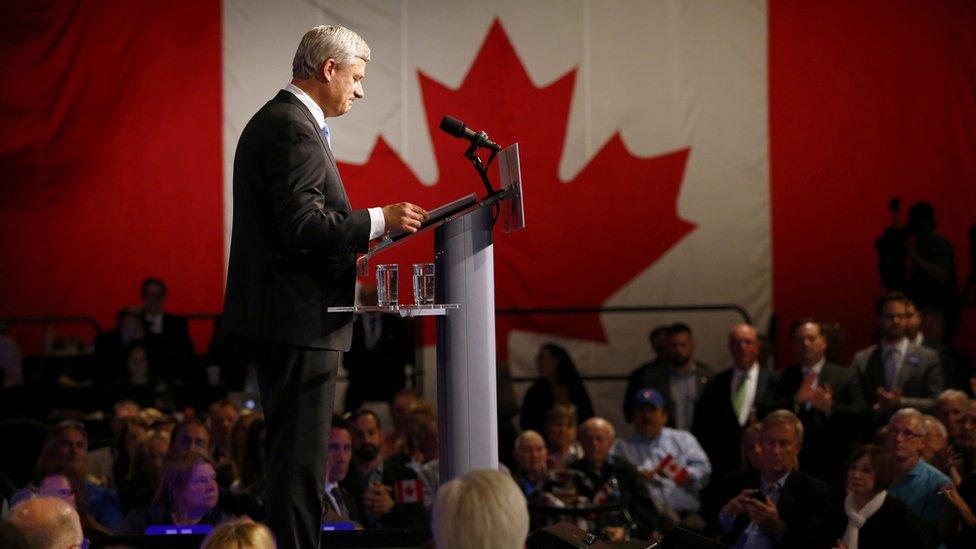
Stephen Harper was prime minister of Canada for nearly 10 years before losing an election to Justin Trudeau in 2015
Mr Hunt's campaign team said he was in talks with the former Canadian prime minister, Stephen Harper, who he hopes could help to draw up plans for a deal similar to Canada's free trade agreement with the EU.
In response, Mr Harper tweeted that he was willing to help whoever won the contest.
Allow X content?
This article contains content provided by X. We ask for your permission before anything is loaded, as they may be using cookies and other technologies. You may want to read X’s cookie policy, external and privacy policy, external before accepting. To view this content choose ‘accept and continue’.
Mr Johnson, who has already recruited Health Secretary Matt Hancock into his team, is thought to be drafting in Brexiteers such as Jacob Rees-Mogg as negotiators.
Mr Robbins, the civil servant who masterminded Theresa May's deal, is expected to step down shortly after the new prime minister enters office at the end of July.
He is the latest in a wave of civil servants to choose to quit rather than negotiate a new deal by within 100 days of either Mr Hunt or Mr Johnson becoming prime minister, to deliver Brexit by the delayed deadline of 31 October.

Do you have any questions about Brexit?
Use this form to ask your question:
If you are reading this page and can't see the form you will need to visit the mobile version of the BBC website to submit your question.
- Published18 July 2019
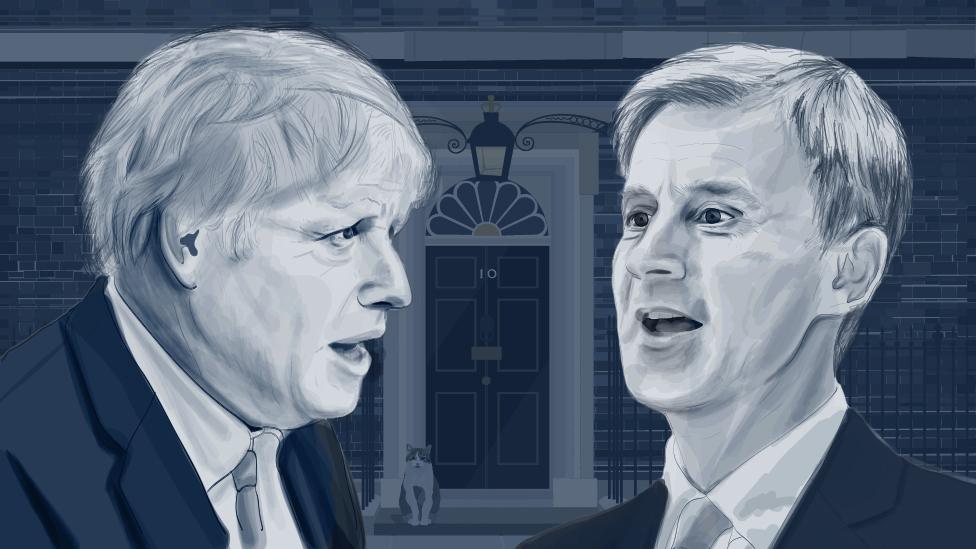
- Published23 June 2019
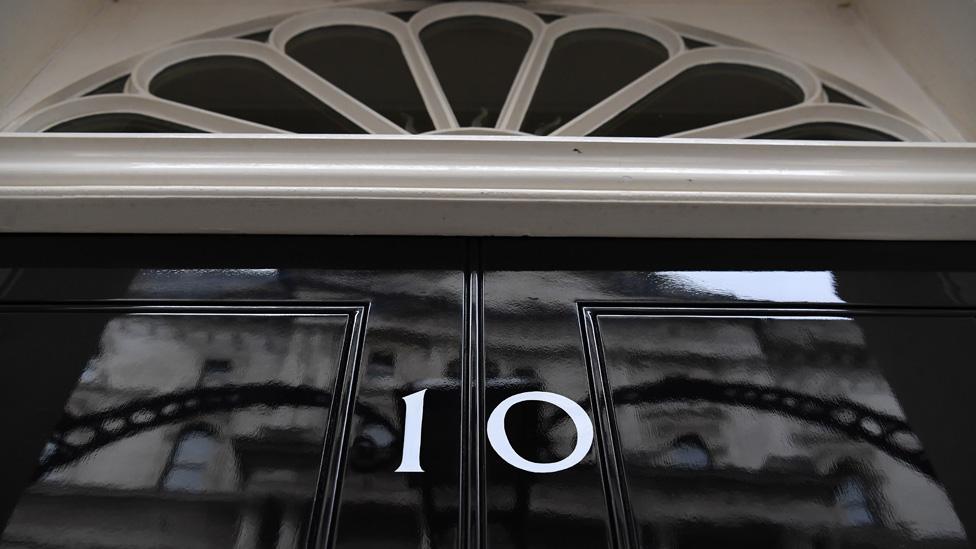
- Published27 June 2019
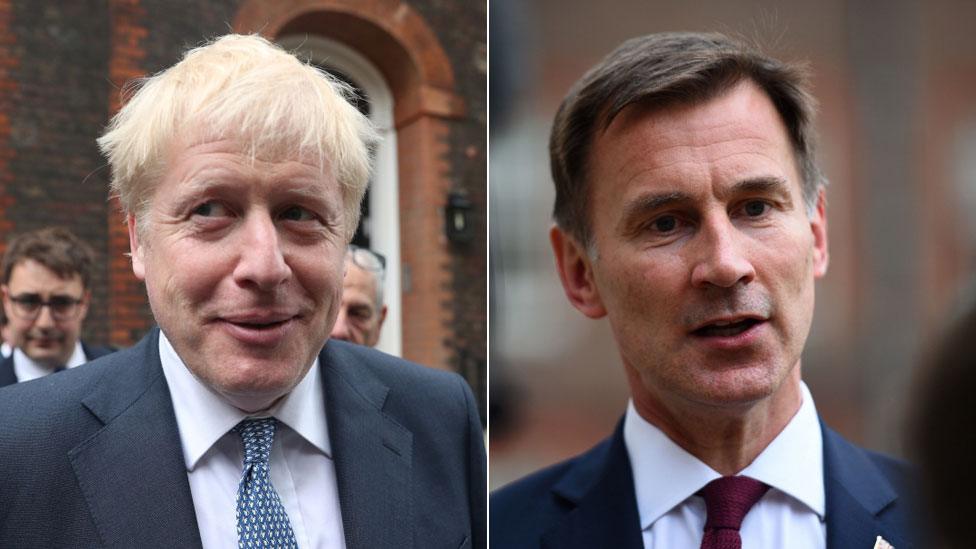
- Published28 June 2019
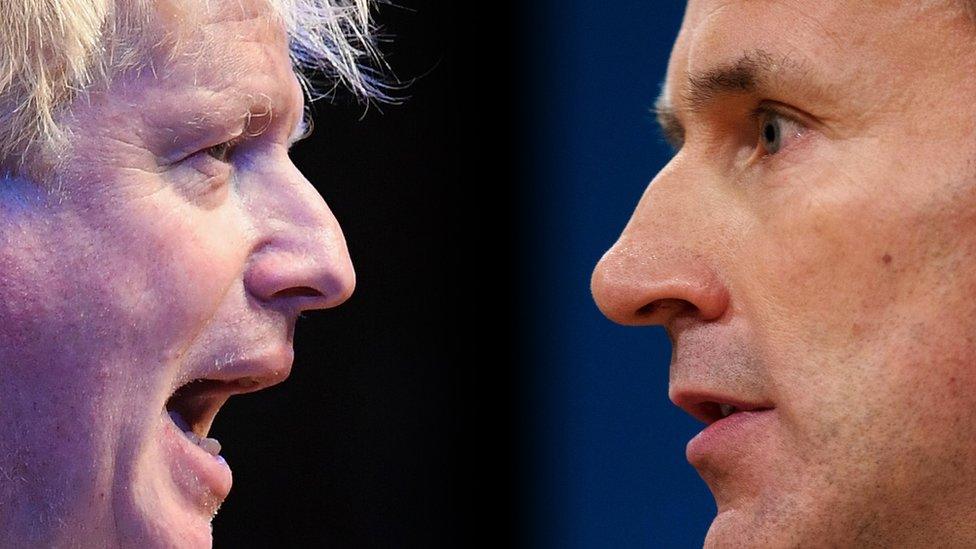
- Published25 June 2019
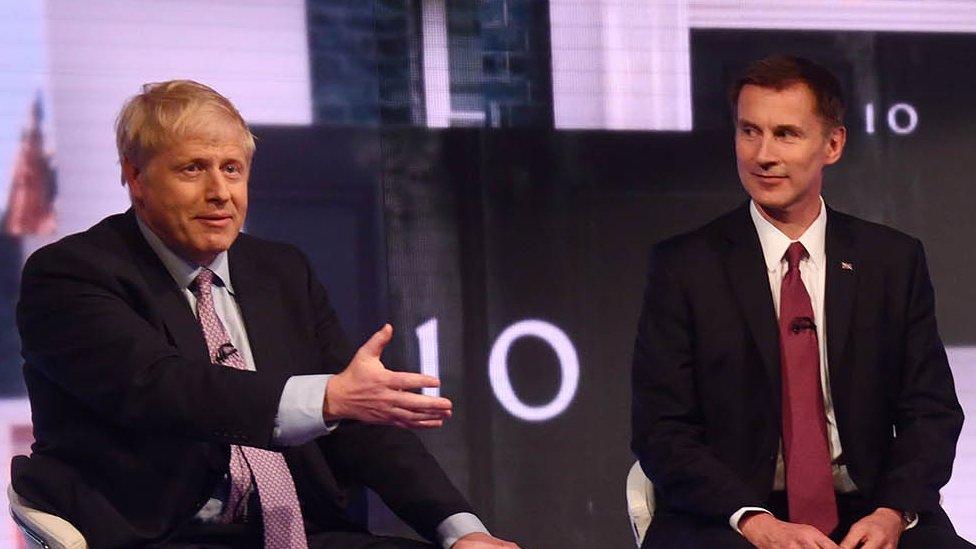
- Published25 July 2019
